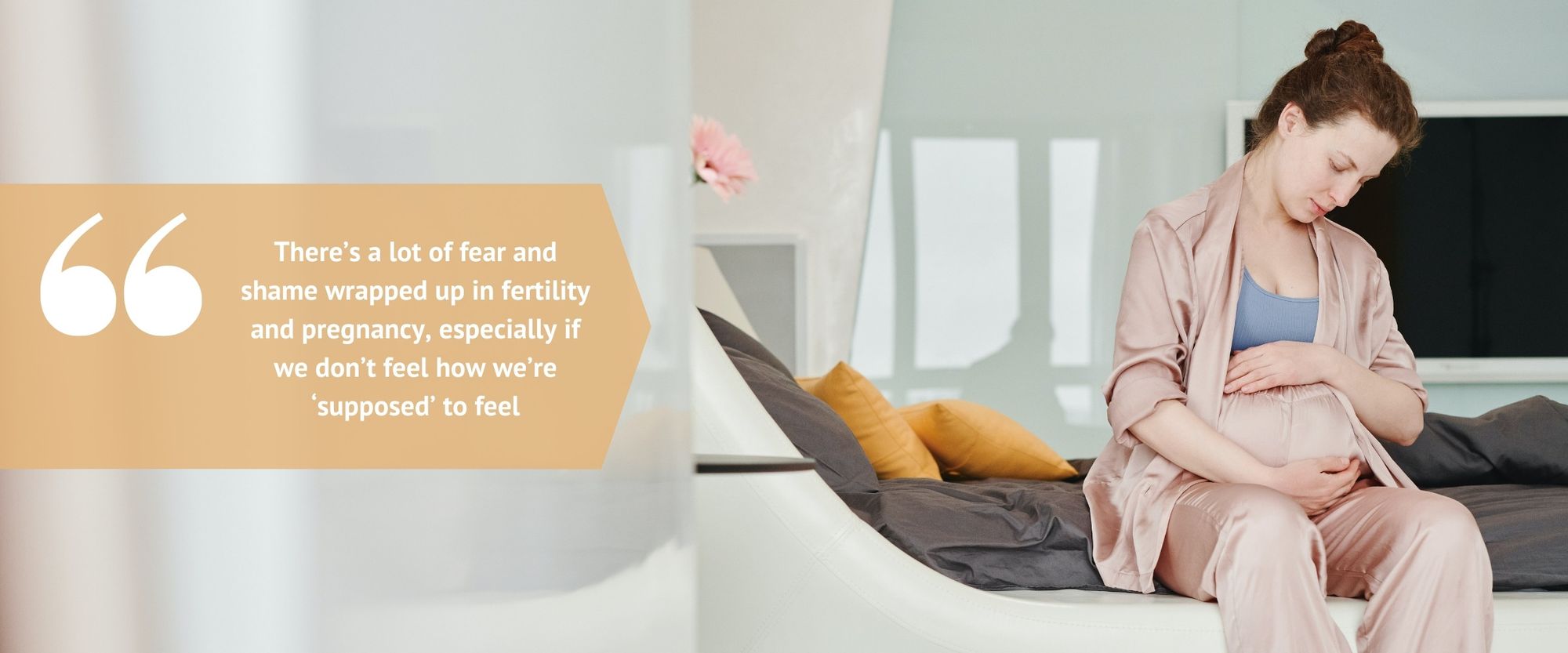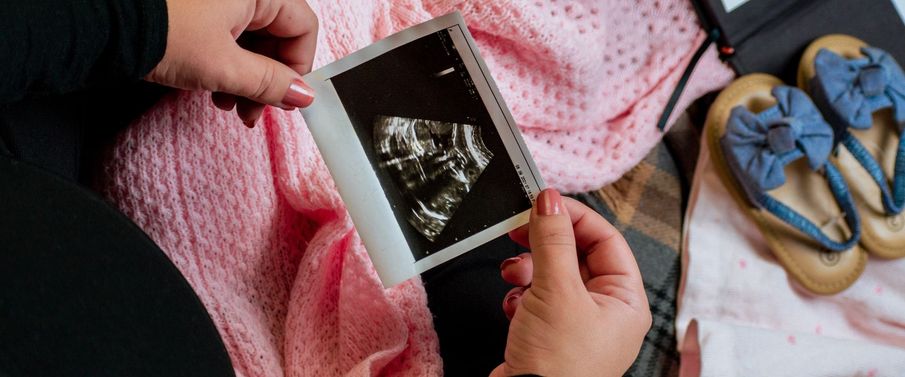For mothers-to-be with eating disorders, the emotions, fears, and uncertainties of pregnancy can be magnified – and triggering
As I sit sipping a glass of ice-cold water, overlooking the San Francisco skyline on my final trip pre-baby, I can’t help but reflect on the past few months, and feel a slight sense of apprehension about what’s to come.
I look down at my bump, growing by the day, and my brain is in turmoil. What will happen to my body? Am I going to be able to exercise again? What if the baby isn’t OK? What if I am not OK? What if I don’t connect with it?
I think back over the past few months. In November, I was on the bathroom floor watching the test timer. Waiting… In that moment, I didn’t even know what I wanted.
I thought back to my teenage years, tainted by having to live with an eating disorder; my hospitalisation in 2007 at the age of 17, where I had to accept I had a problem, and accept the help to understand it.
That year in hospital certainly set me up for life, and left me with some amazing skills, but I knew I still had a way to go. Over the years since, I know my recovery from anorexia hasn’t been linear. Somehow, even when life got harder, and I felt the anorexia pulling me, even through those relapses, I managed to come back. And what kept me going was dealing with uncertainty, communicating, and knowing my motivations.
Even though having children wasn’t my only goal in life, it was certainly a driving factor in my own journey to get to this space.
The timer beeped. Cutting through the noise of my brain. I looked down. And sure enough it read: ‘Pregnant’.
The first few days were a blur of emotion. Despite knowing I wanted to have a family, there is nothing that really prepares you. The body changes, the heightened emotions, the uncertainty – yes, these are things everyone goes through. But when you throw in an eating disorder, what should be some of the simplest things – such as navigating the dos and don’ts with food – become more complicated.
While I had this huge sense of relief that my body was working, there was a part of me that wasn’t actually sure how I felt.
I would be lying if I said I have found it easy being pregnant, but the thing with eating disorders is they use every chance to suck you back in. So, I knew that I had to be proactive in fighting it.
As my body began to change, there was so much fear, uncertainty, and moments when I wasn’t actually sure I could do this. The old me would have used the eating disorder to cope. Those behaviours that had for so long given me a sense of value, purpose, and numbed my emotions… but this time around, with a baby growing inside me, I knew I had to find every ounce of strength to keep going.
The reality is, whatever the mental health issue, whatever the type of eating disorder a person may have had, it doesn’t just disappear in pregnancy. But for those looking on, things can look OK, and we often then assume everything is fine.
While research is limited, we know that pregnancy can be extremely triggering for many with eating disorders – not just because of the uncertainty, but also because of the messaging about weight and diet.
Dr Agnes Ayton, chair of the Faculty of Eating Disorders at the Royal College of Psychiatrists, says: “Eating disorders are potentially life-threatening but treatable mental illnesses, so it’s important that pregnant women can get help as soon as possible. Pregnancy is a time of heightened risk for women with eating disorders because of both the physical and psychological changes involved.
“Health professionals need proper training on eating disorders. They should be able to support pregnant women with a history of disordered eating by talking openly about the risk of relapse, and preparing them for the changes that will happen to their body. Services should provide closer monitoring, discuss healthy approaches to nutrition, develop a relapse prevention plan, and refer women to more specialist help if needed.”
For many, having a family might not be a goal, and for others it is not possible, but the reality is, for those who go down this path it can be really tough. Pregnancy is different for everyone. And that’s OK. There are no heroes, and no villains, and we each have our own journey.
There’s a lot of fear and shame wrapped up in fertility and pregnancy, especially, if we don’t feel how we’re ‘supposed’ to feel.
With all this in mind, here are a few things that really helped me, and a few top tips from Tanya Lloyd, of the Baby Planner (Instagram @thebabyplanneruk). Whether you have had an eating disorder or not, these are things I would definitely recommend!

Top tips
-
Tanya says: “Keep the due date pressure at bay. People can be incredibly loving, but also accidentally intense. Add a week or two to the date, or simply inform people you are not sharing the date.”
-
Surrounding yourself with the right people is key. Tanya says: “Throughout your pregnancy, anything that doesn’t make you feel good should be kept at bay. Whether that is a challenging mother-in-law, or the thought of perineal massage – focus on good vibes only.”
-
Think ahead and work out what’s important post-birth. For me, I knew having good food, and time outside, was key, so I had to make sure I had a plan to make this happen! It’s important to give future you something to look forward to.
-
Know your worth. Speaking up in pregnancy about our mental health, and the support we need, is so important! It might feel uncomfortable, but it is so worth doing.
-
When you are pregnant everyone thinks they are an expert, but as Tanya says: “Pregnancy exposes you to unsolicited advice in a way that you could never imagine. Know that it happens, and that most people have loving intentions. If you experience it, you can decide whether to silently roll your eyes, or have a discussion about it, depending on what makes you feel more comfortable.”
-
Find ways to communicate, remembering that not everyone will get it, and that’s OK. For me, I found a handful of people who I could be really honest with, which helped a lot.
-
Have a plan in place for afterwards. A lot of my fears were about what happens after. I was afraid of relapsing, of going back to old behaviours to manage my mood and emotions, so I knew I had to think proactively about what this would look like from a care perspective.
-
Be mindful of what you are looking at online, to ensure your sources are trustworthy. I used the NHS website and the BabyCentre app.
-
Affirmations are so helpful. Interrupt unhelpful thoughts, and respond in kindness.
For more information and support with eating disorders and pregnancy, visit counselling-directory.


Comments